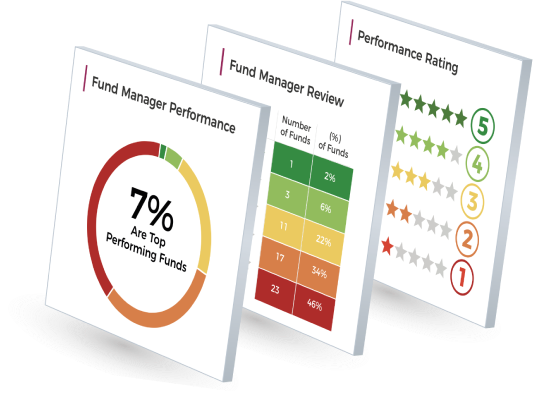What kind of investor am I?
This should be the first question that people ask themselves when investing, yet aside from establishing one’s risk tolerance, it’s a topic that’s rarely explored.
The reason why this question matters is because aspects such as your personality type, investment goals, your ability to weather losses, and the potential impact this may have either personally or professionally, can determine what investments and investment strategy are currently right for you.
Investing is a long-term journey, that when travelled can see many different personal and professional challenges where you’re more vulnerable to losses than others. Therefore, your risk profile is a moving variable that will alter through various life stages, as will your suitability for specific investment products or markets.
Without exploring this correctly, you could end up investing inefficiently in strategies that can result in assuming excess risk or missed opportunities to grow and protect your wealth.
The Mild Investor
The conservative investor wants to carefully plan and place more emphasis on protecting their money than growing their money. Therefore, the right balance for them is one that weighs on the side of caution and provides peace of mind by keeping their investments relatively stable during market fluctuations and periods of volatility. Such investors, should ignore trends and accept relatively low to modest investment gains in exchange for being able to sleep soundly as an acceptable trade-off.
There are many different reasons why people may put themselves in this bracket. They could range from older investors who are close to drawing on their pension and are now tapering back on their risk exposure, to younger investors who have a lot of spinning plates as they try and forge ahead with their careers and build their future.
Investing should not involve stress or worry. It should be a controlled process of careful planning and sensible decision making. Whenever investors experience emotions such as doubt or concern the chances are their current investment strategy needs adjusting. In such case, it may be time to trim back their exposure to more volatile asset classes and to move into cash or lower risk products. However, for investors who want as little worry as possible with investments or those who would typically save their money in savings accounts only for such low-interest rates, then low yielding cash funds or low yielding government bonds are likely to be more suitable.
The Calm Investor
The focused investor is willing to take more risk than their conservative cousin, but protecting their wealth is still very important to them. They plan to grow their wealth and should approach this methodically and carefully. However, they are willing to try new things to make money but will err on the side of caution, keen to know that the value of their investment is as secure as possible.
They will pay close attention to what they are doing and be willing to persevere with their investing approach and not panic should their investments suffer short-term losses. Such investors can rationally deal with any setbacks, but if required, they are also able to readjust and make amendments to their portfolios.
They plan to grow their wealth and should approach this methodically and carefully.
The Adventurous investor
Adventurous investors have confidence in their investment strategy to make high-risk decisions that have the potential to deliver significant rewards or substantial losses.
They know what they want and like to set out a clear plan of what they will do to achieve it. Although their investment approach is high risk, their decisions and overall strategy are built upon rationale and rarely driven by emotion.
They know what they want and like to set out a clear plan of what they will do to achieve it. Although their investment approach is high risk, their decisions and overall strategy are built upon rationale and rarely driven by emotion.
Optimism can often pay off in the world of investing, and the adventurous investor is the kind of person willing to make decisions without fear. However, they are likely to have built up other assets, whether it be via cash savings, property, or business assets, which affords them the security to take more risk with their investments.
However, not all adventurous investors have the capability to follow such a high-risk approach with their investments. There are those who are ill-prepared to deal with substantial losses that can come with a high-risk approach - which ultimately makes them more reckless than adventurous.
For an adventurous investor, the level of risk they are willing to take in their pursuit of returns is rarely black and white. However, they are often willing to buy into higher risk emerging markets or look to capitalise on trends or periods of volatility. However, it is critical that they continue to objectively assess why they are making their investment decisions, so they continue to know what’s at stake.
The Exploring investor
An inquiring mind is one of the critical characteristics of the exploring investor. They have taken an interest in investing and are willing to try new things to grow their wealth. This type of investor is not gung-ho but is willing to indulge in a little trial and error to find out what works best for them, usually with small sums relative to their overall affordability.
The exploring investor knows that investing is a long-term game and so the idea that this gives them time to head off down different paths resonates with them. Like any good explorer, they should have a contingency plan to go with that open mind and must still carefully weigh up any risks they decide to take.
What type of investor you are? How to decide
Each investment strategy is determined based on the level of risk each investor is willing to take with their investment. However, there is more to investing than just risk; it’s also about building, implementing and managing an investment strategy that fits your personality
The most successful investors consistently beat the market not because they have perfect timing or tons of money. They do it by identifying their natural inclinations (both good and bad) and using best practice methods, philosophies, and strategies that best match the way their brains are wired.
As Warren Buffett says, "Success in investing doesn't correlate with I.Q. ... what you need is the temperament to control the urges that get other people into trouble in investing."















